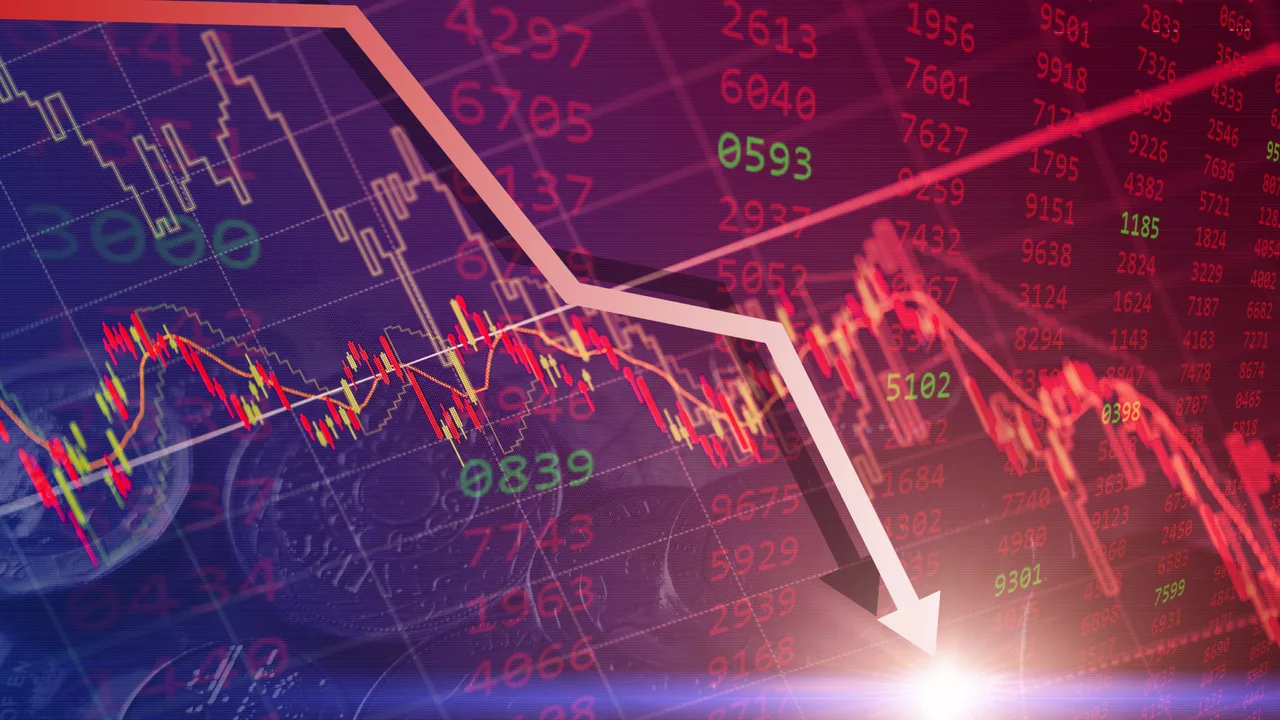Exploring the Mystifying Paradox
I kid you not, folks, the further I dive into this conundrum known as the global economy, the more I come face-to-face with tricky little paradoxes. Just when you think you've figured out that up means north and down means south, something comes along and flips your compass entirely! It's like walking into a room where gravity has taken a day off. It's in this mind-boggling complex world we find ourselves scratching our heads and asking, "If the business is down, why is the stock market going up?" Quite a head-scratcher, eh?
Let's consider it like this, you're sitting in your favorite coffee shop, sipping at the steaming cup of java goodness in your hands, and you look up at the TV to see the headline, 'Economy In Recession.' You choke on your cappuccino, almost burning your tongue. At that moment, your phone buzzes with a notification from your stock trading app, declaring, 'Market Up By 5%'. Bizarre, isn't it? Let's embark on a journey to demystify this perplexing phenomenon together.
Understanding the Independency of the Market
Now, here's the giggle-worthy part. The stock market, in all its glory and glamour, likes to think of itself as an independent fellow. Just like my teenage cat, Mr. Whiskers, who would climb over the moon if it meant he could avoid doing what I say. Crazy, right? In the grand scheme of things, you'd expect the stock market to be pretty tied down to the state of the economy. Well, often it is, but it can and does march to the beat of its own drummer at times.
Let's say a business, hypothetically let's call it "Business X" is not doing particularly well. Its sales figures are languishing, it's losing market share, and its workforce morale is in the pits. Quite a bleak picture, right? Now, Business X is part of the greater economy, its poor performance will further depress the macroeconomic figures. But when we peek at the market, lo and behold, the stocks are singing a different tune! They're marching upward and hitting new highs. This is because the stock market tends to be forward-looking, dramatically different from the sinking scenario of Business X. Confusing? Absolutely. Interesting? Definitely!
Deciphering The Psychology of Investors
We humans are fascinating creatures, aren't we? We put men on the moon, deep dive into unexplored ocean depths, and in our spare time and infuse scones with cheese and jalapeño. Why wouldn't our behavior when it comes to investing be any different? Picture this, you walk into a movie theater, you see that they've hiked up the price on your buttery, salty popcorn that we love so much. Sure, it's expensive. But this is your tradition! Your special treat! So, you shell out the extra bucks, grudgingly but willingly. This is a simple example of emotional investing, and it plays a massive role in the stock market.
Generally speaking, when the economy tanks, businesses suffer. Logically, stocks should take a dive too. But alas, logic is often guests of the ever-confusing stock market parties! It all comes down to investor sentiment. If investors think the future will be fantastic, that a business will recover or even thrive, they'll invest. This can push the stock prices up, even if the economy skids to a painful halt. So, what you have is a bunch of optimistic individuals continuously fueling the market to defy gravity and keep climbing. It’s as if Mr. Whiskers, my cat, decides not only to obey but to execute a series of somersaults. Miraculous!
The Role of Central Banks and Government Policies
Last but not least, let's talk about the big fish, the marionettes behind the curtains, also known as central banks and government policies. Imagine you're in a boat in the middle of the ocean, and your boat has a little hole. Water is slowly creeping in. What do you do? You start plugging the hole and scooping out water with whatever you can. This is essentially what central banks and government institutions aim to do.
When they see businesses sinking, economies crying out in pain, they take-up measures to stimulate the economy. This could be in the form of lowering interest rates or implementing VAT cuts. Now here's the curious bit. Cheaper borrowing costs can make certain stocks more appealing. So, the market goes gaga and starts a gala party with higher stock prices, completely ignoring the sorry plight of the economy. So, it's a lot like your completely absorbing episode of your favorite detective series. When the plucky detective appears onscreen, you're so gripped that you ignore your burning pizza in the oven. A true crime indeed!
So there you have it, my friends. The intricate dance the stock market performs, the paradoxical relationship status with the economy: It's complicated. But fascinating, isn't it? Here's to enjoying the enigmas of the economy, understanding the stock market's independent streak, and always ensuring your popcorn is buttery and your pizza is not burnt. Until next time!
